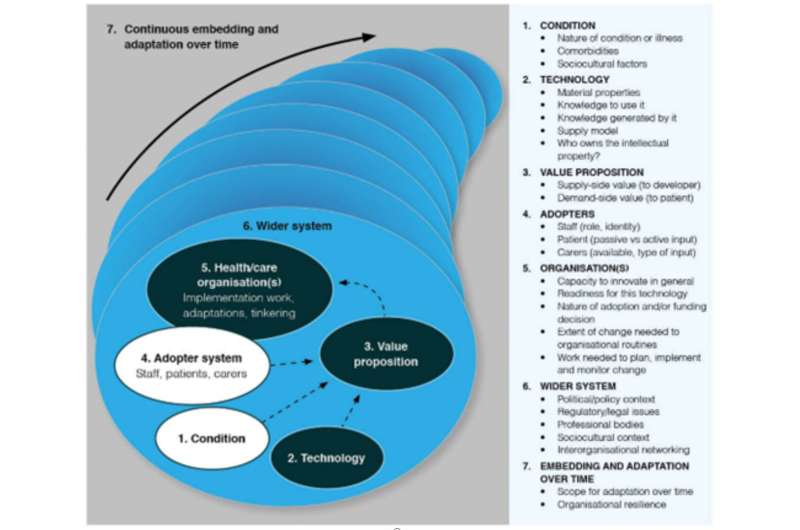Tech project succeeds in connecting care home residents during pandemic

A pioneering project introducing iPads to care homes during the pandemic had a significant impact on social isolation, according to experts at the University of Stirling.
Working in collaboration with the Scottish Government's Technology Enabled Care (TEC) Programme and the Digital Health & Care Innovation Centre (DHI), researchers led by dementia specialist Dr. Grant Gibson, looked at the success of the "Connecting Residents in Scotland's Care Homes" (CRSCH) initiative, finding it played an important role in supporting residents of care homes to maintain contact with family members during COVID-19 lockdowns.
Launched in November 2020, CRSCH aimed to equip all care homes in Scotland with digital devices, connectivity, training and support to tackle social isolation and help residents enjoy the benefits of online access.
Researchers found that through the project, 75% of the 1398 registered care homes in Scotland were provided with at least one iPad, while 115 took possession of multiple devices. iPads were used to support regular video calls between residents and family members, with the technology also found to provide further benefits including physical activity and entertainment.
Dr. Gibson said that their "findings demonstrate that care home residents and staff have particular support needs and face specific challenges with accessing and using technology, but that technology use is popular among residents when provided with useable technology alongside the right training, information and support."
The tablets were found to have been used for different activities to engage residents such a listening to music, watching videos, and Google Maps, with these activities often used to support reminiscence. Many activities were also personalized for individual residents, by creating individual playlists or YouTube video selections for example. Residents were also able to use tablets to engage with physical activities and entertainment resulting in improved mood and a reduction in boredom, and to access health services.
Positive impact on staff
The project also had a positive impact on care home staff who enjoyed using the iPads to support and engage with residents as well as using the devices for notetaking, training via videoconferencing, online meetings and for care planning through specific apps.
Dr. Gibson added that their "evaluation found that the technology also upskilled staff, with those working as activity or well-being coordinators the most likely to embrace the technology, with the project demonstrating just how crucial these staff members are in care homes."
The research team also found that most homes continued to use the iPads after restrictions eased in order to enhance the everyday experiences of their residents.
Moira Mackenzie, DHI's Deputy CEO, added that "this report has helped to clarify the challenges and opportunities associated with the introduction of digital solutions within Scotland's care homes, where staff creativity, skills and enthusiasm were key factors in enabling direct benefits to residents."
The evaluation report, which will be presented to delegates at DHI's Healthy Ageing Innovation Cluster event on 7 September, has made seven recommendations to help sustain and develop the initiative, including reviewing and developing training for care homes to support continued use of the technology, consider routes to engage those care homes who did not participate, and to ensure adequate broadband connectivity and Wi-Fi coverage in care homes.
More information: Report: www.stir.ac.uk/research/hub/publication/1838473
Conference: www.dhi-scotland.com/innovatio … ters/healthy-ageing/


















